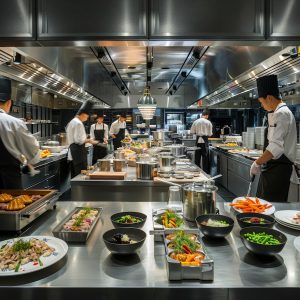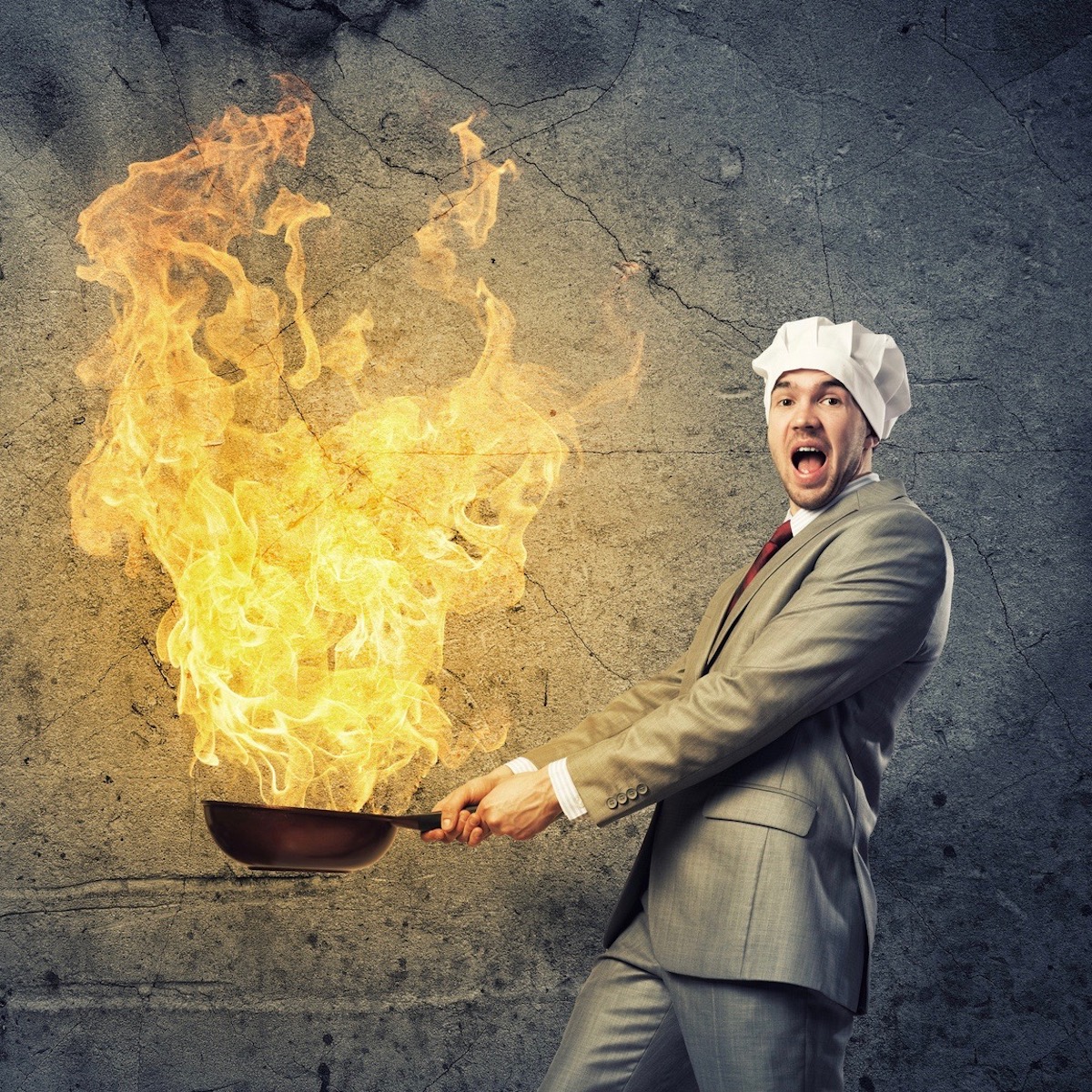What Are a Head Chef’s Duties?
The role of a head chef varies depending on the size of the establishment they manage. The terms “head chef” and “executive chef” are often used interchangeably, but they have distinct roles in some kitchens.
In larger establishments, the executive chef focuses on management and big-picture decisions, while the head chef handles day-to-day operations. The head chef ensures the executive chef’s vision is executed flawlessly. The sous chef supports the head chef, who oversees the kitchen staff and assists with daily tasks.
In smaller kitchens, the head chef often takes on a broader role. With help from the sous chef, they may oversee hiring, menu planning, supply management, staff training, and execution. Whether they are cooking on the line or expediting depends on the size and structure of the operation.
Regardless of the kitchen size, a head chef must possess many skills beyond cooking. This demanding and highly skilled position is essential to any successful kitchen.
Below, I’ve outlined key responsibilities a head chef may handle daily. If you think I’ve missed any, feel free to share your thoughts in the comments!
Did you know the term “chef” comes from the term “chef de cuisine” or head of the kitchen?
Head Chef Responsibilities
Menu Creation and Development
- Design and plan the menu based on seasonality, customer preferences, and trends.
- Ensure the menu aligns with the restaurant’s concept and pricing strategy.
- Update and modify the menu to keep it fresh and appealing.
2. Staff Management and Training
- Hire, train, and supervise kitchen staff.
- Develop team members’ skills and provide ongoing training.
- Delegate tasks effectively to ensure smooth kitchen operations.
- Conduct performance reviews and address any issues or concerns.
3. Food Preparation and Quality Control
- Oversee the preparation and presentation of all dishes.
- Ensure all food meets the establishment’s standards for quality, taste, and presentation.
- Monitor portion sizes, food consistency, and waste control.
4. Inventory and Ordering
- Manage kitchen inventory and order supplies, ensuring timely stock levels.
- Work within budget constraints to reduce waste and control food costs.
- Maintain relationships with vendors and suppliers.
5. Kitchen Operations and Organization
- Supervise the kitchen staff to ensure efficient work and adherence to safety and hygiene standards.
- Maintain cleanliness and organization in the kitchen.
- Ensure proper storage of ingredients to prevent contamination and spoilage.
6. Health and Safety Compliance
- Ensure all food safety regulations and health codes are followed.
- Implement and enforce sanitation practices, such as cleaning schedules and safety protocols.
- Monitor the use of kitchen equipment and ensure its proper maintenance.
7. Cost Control and Budgeting
- Track food costs and minimize waste to meet budget goals.
- Monitor labor costs and adjust staffing levels accordingly.
- Set menu pricing to ensure profitability while remaining competitive.
8. Customer Interaction and Feedback
- Occasionally interact with customers, gathering feedback and addressing concerns.
- Respond to customer special requests or dietary needs.
- Handle complaints related to food quality or service.
9. Coordination with Front-of-House
- Work closely with the front-of-house staff to ensure smooth service.
- Coordinate timing between kitchen and dining room to ensure timely delivery of dishes.
10. Leadership and Team Development
- Lead by example, promoting a positive and efficient kitchen environment.
- Resolve conflicts and maintain morale among the team.
- Encourage creativity and innovation within the kitchen staff.
11. Budgeting and Financial Reporting
- Collaborate with restaurant management to analyze financial reports.
- Ensure kitchen operations stay within budget and contribute to overall profitability.
12. Event Planning and Special Menus
- Plan and execute special events, catering, or seasonal menus.
- Create unique offerings for holidays, private events, or promotions.
13. Staying Current with Trends
- Stay up-to-date with culinary trends, new techniques, and emerging ingredients.
- Experiment with new dishes to keep the menu innovative and exciting.
The head chef plays a pivotal role in the overall success of a kitchen, balancing creativity, management, and technical skill.
What To Consider
Being a head chef is a dynamic, challenging, and rewarding career. Here are additional aspects to consider:
Leadership and Team Management
- Communication Skills: A head chef must clearly convey expectations and instructions to their team. Miscommunication can disrupt service.
- Team Building: Creating a positive kitchen culture improves morale and efficiency. Recognizing and nurturing talent is key.
- Conflict Resolution: Kitchens are high-stress environments. A head chef must resolve conflicts swiftly and professionally.
Business Acumen
- Cost Control: Balancing quality with budget constraints is crucial. This includes managing food costs, labor expenses, and waste.
- Menu Pricing: Setting the right prices requires understanding food costs, market trends, and customer expectations.
- Profit Margins: The head chef often contributes to the financial success of the establishment by controlling expenses and maximizing revenue.
Adaptability
- Problem Solving: Equipment breaks, staff call out, or ingredients run out. Quick thinking is essential.
- Trends and Customer Preferences: Staying current with food trends and adapting menus keeps customers coming back.
Work-Life Balance
- Long Hours: The role often demands long, irregular hours, including nights, weekends, and holidays.
- Stress Management: High pressure is part of the job. Finding ways to manage stress is crucial to long-term success.
Continuing Education
- Training: Staying updated on culinary techniques, technology, and food safety regulations helps maintain excellence.
- Networking: Building relationships within the industry can open doors for growth and collaboration.
A head chef’s role is much more than cooking; it’s about leading, managing, and innovating in a fast-paced environment. If you embrace these challenges, it’s one of the most fulfilling careers in the culinary world.












